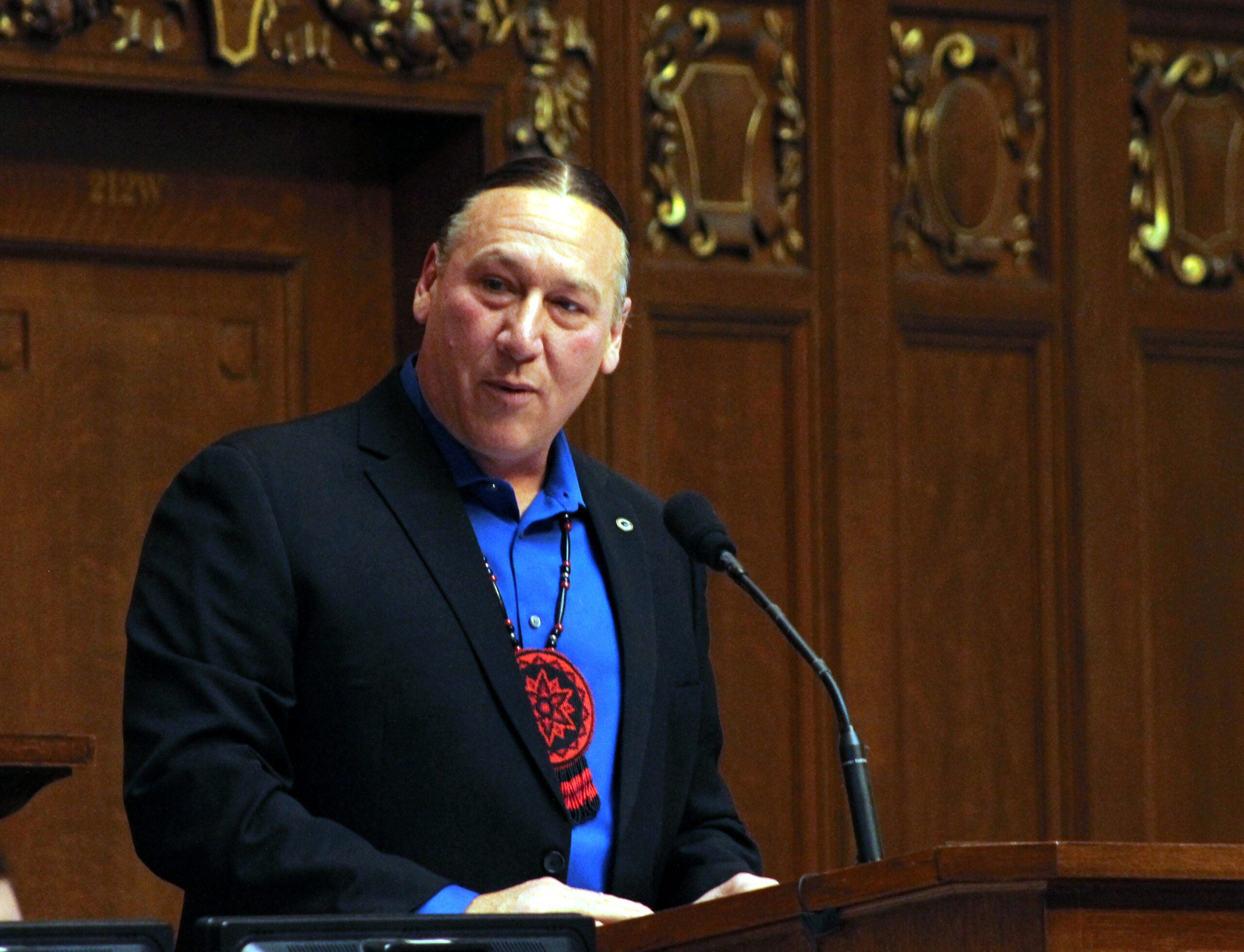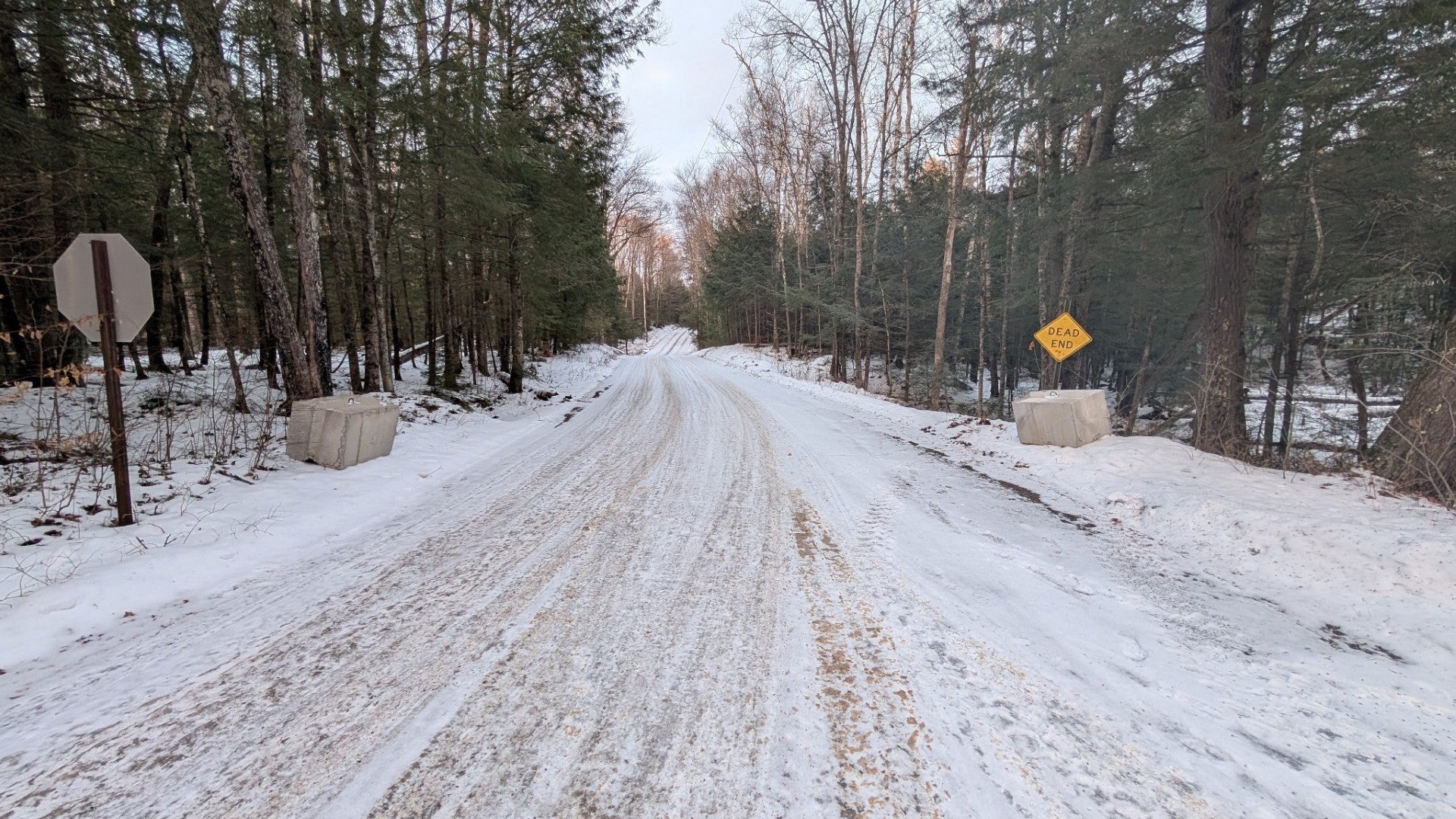Members from all of Wisconsin’s Native American tribes gathered at the state Capitol Tuesday for the annual State of the Tribes address.
After a march around the building, hundreds of people poured into the state Assembly chamber. An Ojibwe prayer was recited before this year’s speaker, Lac Courte Oreilles Tribal Chairman Mic Isham, took the podium.
Isham spent a large part of his address talking about stereotypes.
Stay informed on the latest news
Sign up for WPR’s email newsletter.
“Now when I get the question, ‘Do you still ride horses and live in teepees?’ I respond back with a question. ‘Do you still drive a stage coach and live in a trapper shack?’” he said.
Isham said that even though lawmakers passed Act 31 — a law requiring Native American education in public schools — more than two decades ago, he’s “not convinced that schools across the state are complying.”
“I would like to call on the tribal state relations committee to add an enforcement mechanism to Act 31,” he said.
Isham said Wisconsin students should learn more than just about the Native Americans of the 1700s and 1800s — they should also learn about time periods through the present day.
“It’s extremely important to the tribes as we know this will improve tribal, state and community relations,” he said.
At the same time, Isham said that while public schools statewide need better Native American education, reservation schools need better resources for extracurricular activities.
“Sports, for example, are a tried and true anti-gang and anti-drug program. Due to funding issues, sports tend to be the first ones that get cut,” Isham said.
Wisconsin has held a State of the Tribes address every year since 2005.
Wisconsin Public Radio, © Copyright 2025, Board of Regents of the University of Wisconsin System and Wisconsin Educational Communications Board.




